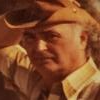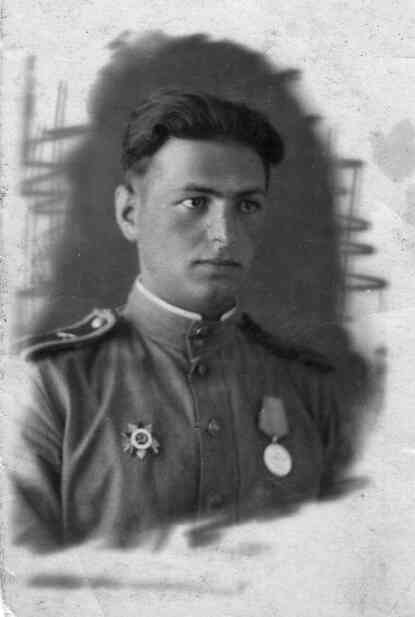Yakov Vaiskopf was born in 1923 in Łódź (Poland). His parents belonged to the communist wing (“Combund”) of the Polish Bund. In 1926, his father Moisey illegally moved to the USSR, where he took part in the construction of the Electric Factory (Elektrozavod) in Moscow. In 1928, Moisey's wife and two sons, Yakov (who was then five years old) and Gennady, joined him in Moscow. Yakov was a very gifted boy, becoming one of the best pupils at his school. As a result, he was transferred to the 2nd grade after spending a mere two weeks in the 1st grade. At that time, Yakov developed a passion for literature, and read a great deal.
In 1937, at the height of the Great Purge, Yakov's father Moisey was arrested, and died of dystrophy at the Kolyma camp in the Russian Far East shortly thereafter. Soon, his wife was also arrested, and there was now no one left to care for the two boys. The authorities put them in orphanages for children from the families of “enemies of the people.” The brothers were separated: Yakov was sent to the small town of Gorodets in Gorky (present-day Nizhny Novgorod) Oblast, while his brother was shipped to Murom in Vladimir Oblast.
At the tender age of fourteen, Yakov himself was arrested, for openly maintaining the innocence of his parents. In the verdict, his age was changed to sixteen. Yakov served the first eight months of his sentence in a prison in Gorky Oblast, where he was put in a cell meant for thirteen, which now accommodated 138 people. The prisoners had to sleep standing up, and there was at least one death every day. He was then sent to a camp in Pot’ma (Mordovia). There, he met Zionist Jews from Poland, who had found themselves in the USSR after the Nazi-Soviet invasion of their country in 1939. Thanks to his phenomenal memory, he was able to memorize a great number of Polish Zionist songs, along with thieves’ songs. Some forty years later, in 1981, he would reproduce and publish these texts in Israel, in a collection titled Thieves’ Songs.
In 1942, when his prison term was up, Yakov volunteered to enlist in the Red Army. He was assigned to the artillery, and commanded a gun unit. On several occasions, his unit was wiped out, but he managed to survive, despite sustaining many wounds. He was nominated for the Order of the Red Banner, but the nomination was not endorsed. Instead, he was awarded the less prestigious Order of the Patriotic War, 1st class.
In 1944, after recovering from yet another injury, Yakov was sent to the Artillery School in Tomsk. He met the end of the war in China. Yakov asked to be discharged, but his request was denied, since the Red Army needed people with military experience. He was demobilized only in 1947. While being issued his internal passport, he noticed a mistake in his name and nationality, which were given as “Voiskov, Russian.” He pointed out the error, and the secretary became upset: “We did it for your own good.” This episode reflects the general sensitivity of the Soviet police to Jewish affairs in the postwar USSR.
Yakov moved to Murom, where his mother and brother lived at that time. There, he met his future wife, a Jewish girl named Anna. The Nazis had murdered her whole family, leaving her the sole survivor. Shortly afterward, the couple relocated to Moscow Oblast, where Yakov enrolled in the Veterinary Academy. Despite being an outstanding student, he failed to receive the coveted "Stalin scholarship," because of the antisemitic policies of the late Stalinist period (1948–1953), which saw the anti-cosmopolitan campaign, the "Doctors’ plot", etc. By that time, Yakov held firm Zionist views, and was following the first steps of the nascent State of Israel with great enthusiasm.
After graduating from the Academy, Yakov was sent to Estonia, which had been reannexed by the USSR in 1944. Thanks to his high salary, he was able to spend a lot of money on a collection of antique books. However, he was forced to leave these books behind when immigrating to Israel in 1972. Once in the new country, he found a job at the Biblical Zoo in Jerusalem, and later worked at various sites in the Negev Desert. In 1977, he returned to Jerusalem, and worked as a veterinarian at a poultry farm. Alongside this job, Yakov continued to indulge his old passion for literature, editing and reissuing a large number of titles that were banned (or, at least, hard to find) in the USSR, many of them pertaining to Jewish subjects.
In his last years, Yakov travelled a great deal, visiting the equator and several "exotic" countries, such as Kenya. He was also able to recreate, and even expand, his book collection. His son Mikhail became an outstanding Israeli philologist. Yakov Vaiskopf died in 1987.








